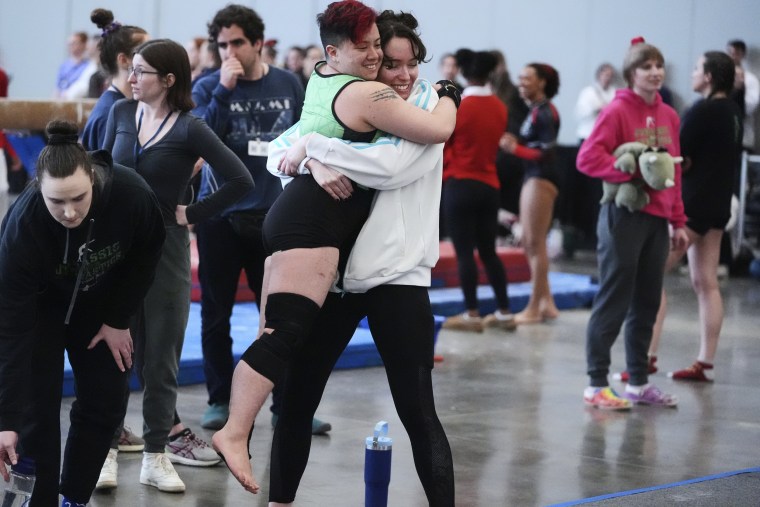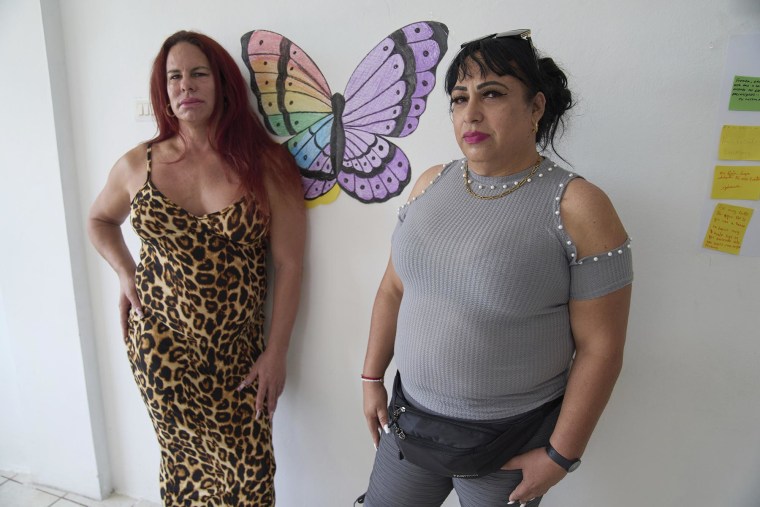Hungary passes constitutional amendment to ban LGBTQ+ public events, seen as a major blow to rights
Hungary’s parliament on Monday passed an amendment to the constitution that allows the government to ban public events by LGBTQ+ communities, a decision that legal scholars and critics call another step toward authoritarianism by the populist government.
The amendment, which required a two-thirds vote, passed along party lines with 140 votes for and 21 against. It was proposed by the ruling Fidesz-KDNP coalition led by populist Prime Minister Viktor Orbán.
Ahead of the vote — the final step for the amendment — opposition politicians and other protesters attempted to blockade the entrance to a parliament parking garage. Police physically removed demonstrators, who had used zip ties to bind themselves together.
The amendment declares that children’s rights to moral, physical and spiritual development supersede any right other than the right to life, including that to peacefully assemble. Hungary’s contentious “child protection” legislationprohibits the “depiction or promotion” of homosexuality to minors aged under 18.
The amendment codifies a law fast-tracked through parliament in March that bans public events held by LGBTQ+ communities, including the popular Pride event in Budapest that draws thousands annually.
Related Stories
That law also allows authorities to use facial recognition tools to identify people who attend prohibited events — such as Budapest Pride — and can come with fines of up to 200,000 Hungarian forints ($546).
Dávid Bedő, a lawmaker with the opposition Momentum party who participated in the attempted blockade, said before the vote that Orbán and Fidesz for the past 15 years “have been dismantling democracy and the rule of law, and in the past two or three months, we see that this process has been sped up.”
He said as elections approach in 2026 and Orbán’s party lags in the polls behind a popular new challenger from the opposition, “they will do everything in their power to stay in power.”
Opposition lawmakers used air horns to disrupt the vote, which continued after a few moments.
Hungary’s government has campaigned against LGBTQ+ communities in recent years, and argues its “child protection” policies, which forbid the availability to minors of any material that mentions homosexuality, are needed to protect children from what it calls “woke ideology” and “gender madness.”
Critics say the measures do little to protect children and are being used to distract from more serious problems facing the country and mobilize Orbán’s right-wing base ahead of elections.
“This whole endeavor which we see launched by the government, it has nothing to do with children’s rights,” said Dánel Döbrentey, a lawyer with the Hungarian Civil Liberties Union, calling it “pure propaganda.”
Constitution recognizes two sexes
The new amendment also states that the constitution recognizes two sexes, male and female, an expansion of an earlier amendment that prohibits same-sex adoption by stating that a mother is a woman and a father is a man.
The declaration provides a constitutional basis for denying the gender identities of transgender people, as well as ignoring the existence of intersex individualswho are born with sexual characteristics that do not align with binary conceptions of male and female.
In a statement on Monday, government spokesperson Zoltán Kovács wrote that the change is “not an attack on individual self-expression, but a clarification that legal norms are based on biological reality.”
Döbrentey, the lawyer, said it was “a clear message” for transgender and intersex people: “It is definitely and purely and strictly about humiliating people and excluding them, not just from the national community, but even from the community of human beings.”
The amendment is the 15th to Hungary’s constitution since Orbán’s party unilaterally authored and approved it in 2011.
Facial recognition to identify demonstrators
Ádám Remport, a lawyer with the HCLU, said that while Hungary has used facial recognition tools since 2015 to assist police in criminal investigations and finding missing persons, the recent law banning Pride allows the technology to be used in a much broader and problematic manner. That includes for monitoring and deterring political protests.
“One of the most fundamental problems is its invasiveness, just the sheer scale of the intrusion that happens when you apply mass surveillance to a crowd,” Remport said.
“More salient in this case is the effect on the freedom of assembly, specifically the chilling effect that arises when people are scared to go out and show their political or ideological beliefs for fear of being persecuted,” he added.
Suspension of citizenship
The amendment passed Monday also allows for Hungarians who hold dual citizenship in a non-European Economic Area country to have their citizenship suspended for up to 10 years if they are deemed to pose a threat to public order, public security or national security.
Hungary has taken steps in recent months to protect its national sovereignty from what it claims are foreign efforts to influence its politics or even topple Orbán’s government.
The self-described “illiberal” leader has accelerated his longstanding efforts to crack down on critics such as media outlets and groups devoted to civil rights and anti-corruption, which he says have undermined Hungary’s sovereignty by receiving financial assistance from international donors.
In a speech laden with conspiracy theories in March, Orbán compared people who work for such groups to insects, and pledged to “eliminate the entire shadow army” of foreign-funded “politicians, judges, journalists, pseudo-NGOs and political activists.”





